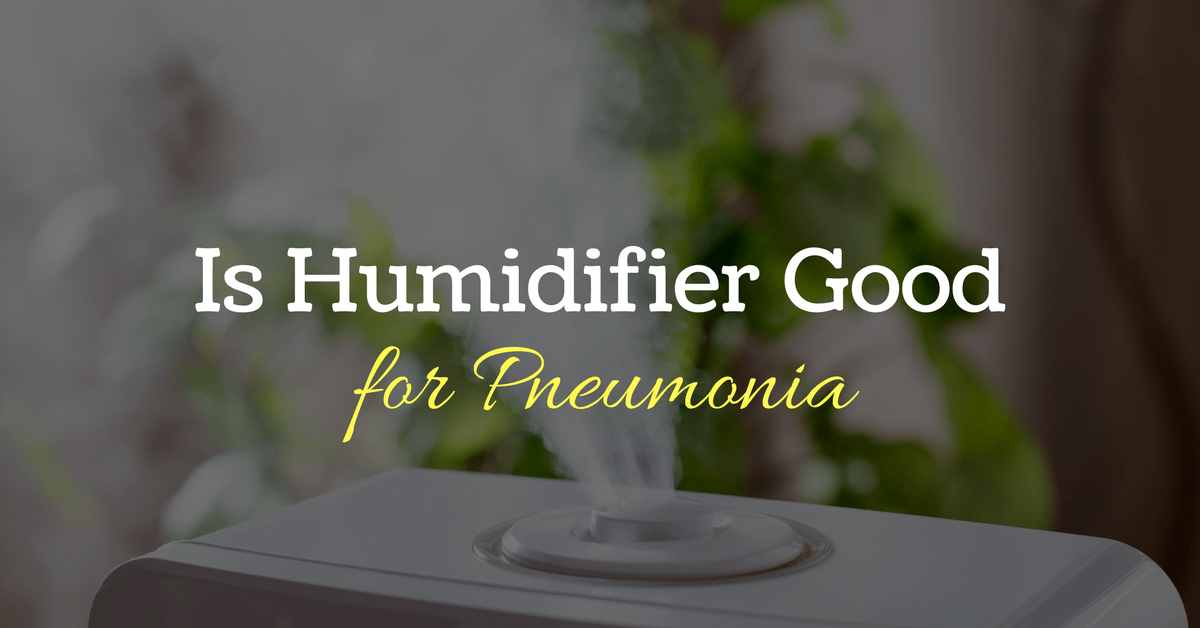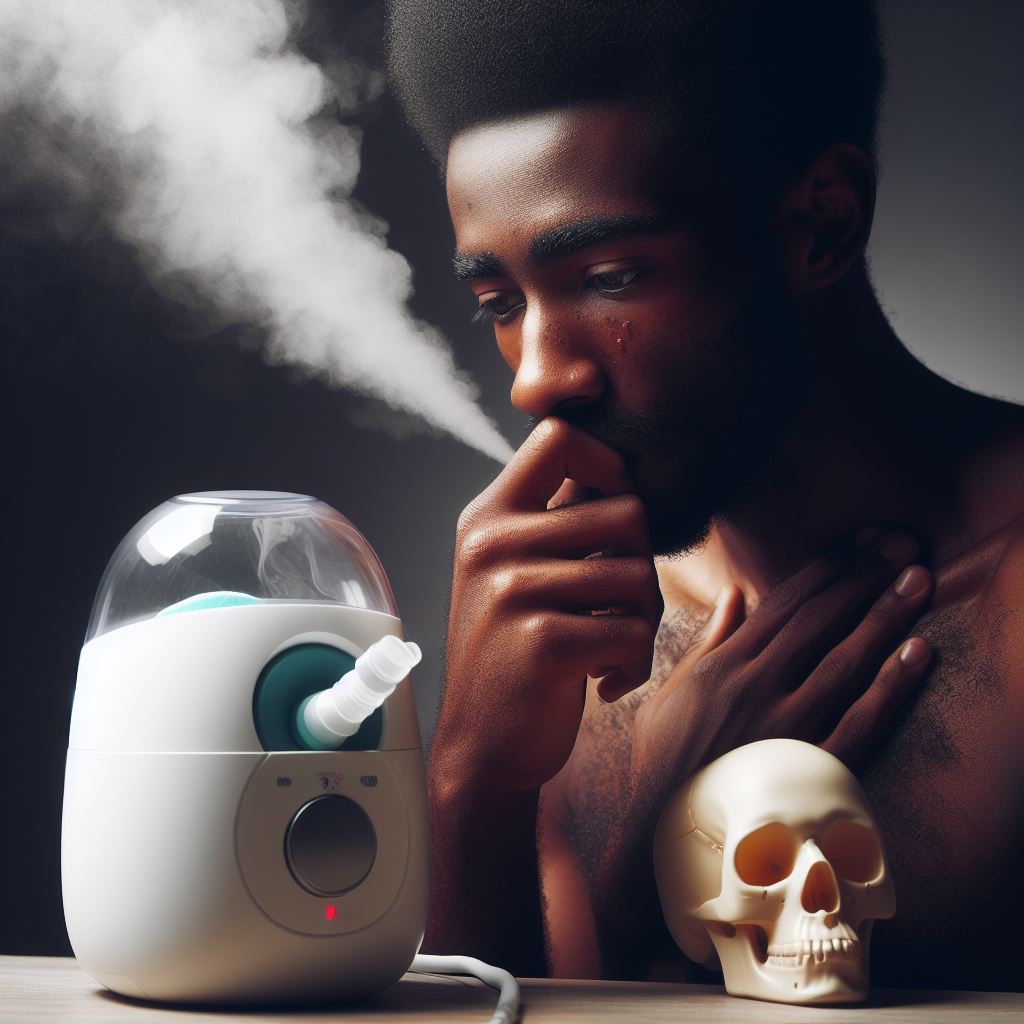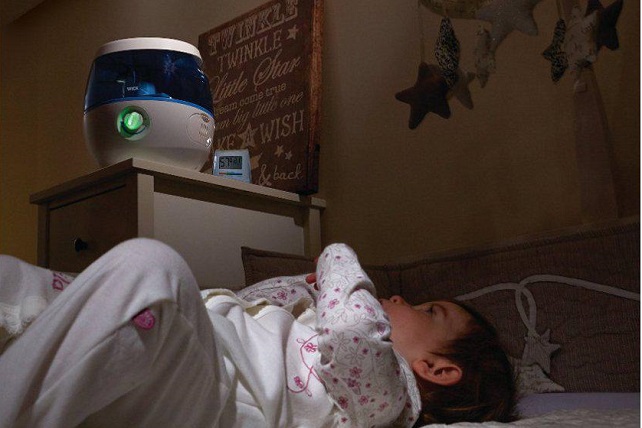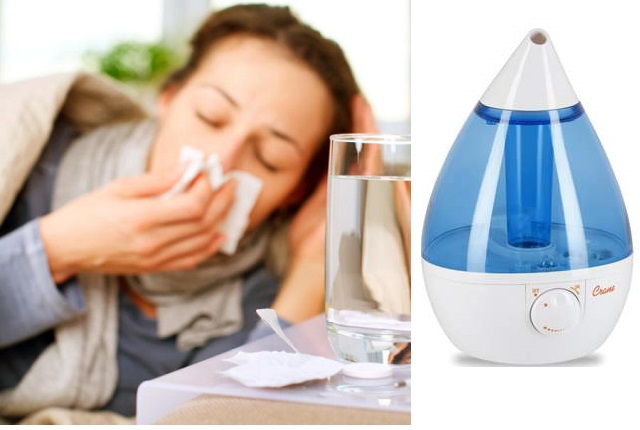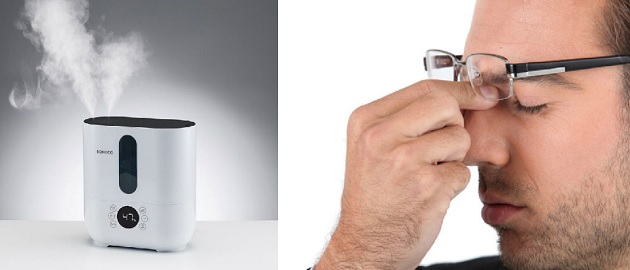Can Humidifiers Aid Pneumonia Recovery? Essentials to Know
When battling pneumonia, every breath can feel like a challenge. I’ve often wondered if a humidifier could be a secret weapon in the fight for easier breathing. It’s not just me—this is a common question among those suffering from this lung infection.
So, I’ve dived into the latest research to uncover if adding moisture to the air really helps. In this article, I’ll share what I’ve found about humidifiers and their role in managing pneumonia symptoms. Stick with me to discover if a humidifier should be part of your recovery toolkit.
What is Pneumonia?
Pneumonia is an infection that inflames the air sacs in one or both lungs. The air sacs may fill with fluid or pus, causing cough with phlegm or pus, fever, chills, and difficulty breathing. Various organisms, including bacteria, viruses, and fungi, can cause pneumonia.
The severity of pneumonia can range from mild to life-threatening. It’s most serious for infants and young children, people older than age 65, and people with health problems or weakened immune systems. Here’s what you need to know:
- Causes: Pneumonia can be caused by a variety of organisms, including influenza and COVID-19.
- Symptoms: Common symptoms include chest pain when you breathe or cough, confusion in older adults, fatigue, and a lower than normal body temperature in some cases.
- Diagnosis: Doctors diagnose pneumonia based on physical exams and tests, which can include chest X-rays and blood tests.
It’s crucial to understand that while some types of pneumonia are contagious, others aren’t. The infectious types are transmitted primarily through airborne droplets from a cough or sneeze. You’re more likely to get the infection if your immune system is impaired due to illness, age, or other factors.
The treatment for pneumonia involves curing the infection and preventing complications. People who have community-acquired pneumonia usually can be treated at home with medication. Although most symptoms ease in a few days or weeks, the feeling of tiredness can persist for a month or more.
Part of managing the condition includes adequate rest, proper nutrition, and maintaining a healthy environment. I’ve dived into current research to evaluate if adding a humidifier to your environment might be beneficial, especially as you recover from pneumonia, and I’ll share these findings as we explore the potential benefits and precautions associated with using a humidifier during recovery.
How Does Humidity Affect Pneumonia Symptoms?
When dealing with pneumonia, understanding the impact of humidity on symptoms is crucial. My experience tells me that the moisture level in the air can significantly influence both comfort and healing processes during recovery from this condition. Too much or too little humidity can negatively affect the respiratory system, especially when it’s already compromised by an infection like pneumonia.
Optimal humidity levels—usually between 40-60%—can help soothe irritated airways and potentially reduce the severity of coughing and congestion. When the air is too dry, mucous membranes in the respiratory tract can become dry and irritated, exacerbating symptoms like a sore throat and dry cough. On the other hand, high levels of humidity can hinder breathing, potentially fostering the growth of mold and bacteria which may be harmful, especially for those with weakened immune systems.
Using a humidifier can assist in maintaining a balanced humidity level. Cool-mist humidifiers are often recommended during pneumonia recovery as they can help keep nasal passages moist and reduce the risk of mucus thickening, making it easier to breathe. However, it’s essential to keep the humidifier clean to prevent the spread of bacteria or mold in the air which can impair recovery.
Research supports this notion to some extent; a study in the Environmental Research journal found that higher humidity levels can decrease the transmission of influenza viruses, which suggests that proper humidity might also be helpful in reducing the spread of some pneumonia-related pathogens.
To integrate humidity control as part of a pneumonia treatment plan, it’s advisable to:
- Monitor indoor humidity levels with a hygrometer
- Use a humidifier to add moisture to the air if levels are low
- Ensure regular cleaning of the humidifier to mitigate potential health risks
Balancing indoor humidity is a key supportive element in creating a conducive environment for healing from pneumonia, keeping in mind the aforementioned guidelines. Keeping a careful watch on humidity levels is just one aspect of managing pneumonia symptoms effectively.
Benefits of Using a Humidifier for Pneumonia
When I’m recovering from pneumonia, I’ve found a humidifier to be an essential tool in my healing arsenal. By emitting water vapor into the air, humidifiers help maintain the delicate balance of humidity my respiratory system craves. The indoor air becomes a soothing blanket that cocoons my irritated lungs and airways, alleviating the troublesome symptoms associated with pneumonia.
Optimal humidity levels play a pivotal role in respiratory health, especially when you’re under the weather with pneumonia. Here’s why I consider using a humidifier a smart move:
- Moisture-rich air keeps the airways moist, loosening mucus and making it easier to expel.
- Consistent use reduces the severity of coughs, helping me get the rest I need.
- By curbing nasal congestion, a humidifier enables more comfortable breathing.
Staying within the ideal humidity range of 30-50% ensures that the air isn’t too dry or too moist, both of which can worsen symptoms. Studies have shown that within this range, the air fosters an environment less hospitable to flu viruses, potentially offering some level of protection during the height of pneumonia recovery.
My humidifier is a cool-mist type, which is generally considered safer because it doesn’t involve hot water that could potentially cause burns. As someone conscious about energy consumption, I appreciate that it’s also energy-efficient, often less expensive, and easier to maintain than warm-mist variants. Remember, regular cleaning is critical since a dirty humidifier can harbor bacteria and mold, defeating the purpose of using one to aid your recovery.
So, whether it’s managing coughs or ensuring my throat isn’t dry, incorporating a humidifier into my pneumonia care routine positively impacts my comfort and recuperation. Keeping an eye on humidity levels with a simple hygrometer and running a clean, well-maintained humidifier can do wonders for anyone enduring pneumonia’s harsh symptoms.
Types of Humidifiers for Pneumonia
When considering the use of humidifiers for pneumonia, it’s essential to understand the different types that can cater to your specific needs. Each type has its unique features and knowing them can help you make an informed decision.
Cool-mist humidifiers are widely recommended for people with pneumonia. They emit a comfortable, room-temperature mist and come in two main variants: evaporative and ultrasonic. Evaporative humidifiers work by blowing air over a wet wick filter, while ultrasonic humidifiers use high-frequency vibrations to produce mist. Both are effective at maintaining the proper humidity levels without warming up the room, which is a bonus if you have pneumonia and your body is already feeling overheated.
- Ultrasonic Cool-Mist Humidifier:
- Operates quietly
- Generates a fine, cool mist
- Often features variable mist settings
- Evaporative Cool-Mist Humidifier:
- Self-regulating as the room’s humidity affects evaporation speed
- More widely available
- Filters may need regular replacement
Warm-mist humidifiers, or steam vaporizers, boil water to release steam and humidity into the air. While these are good at killing germs in the water due to the high temperatures, they’re generally not the best choice for pneumonia sufferers as they can make the room uncomfortably warm.
Safety is another critical factor when choosing a humidifier. Cool-mist options are usually preferred over warm-mist humidifiers as they don’t pose a burn risk, making them more suitable for use around children or while sleeping.
Lastly, considering the size of the humidifier is key for effective use. A model too small won’t adequately humidify the room, while one too large can create excessive moisture, potentially leading to mold growth. Opt for a unit that matches the size of the space where you’ll be spending most of your recovery time.
Remember, whichever type you choose, keeping the humidifier clean is paramount to prevent any harmful organisms from dispersing into the air, and adding to your health woes. Regular maintenance ensures your humidifier aids in your recovery without introducing new risks.
Best Practices for Using a Humidifier for Pneumonia
When leveraging a humidifier to aid pneumonia recovery, it’s crucial to adhere to best practices that ensure the environment promotes healing, not hinders it. A proper routine not only maximizes the benefits of increased humidity but also safeguards against potential health risks associated with improper use.
Ensure Optimal Humidity Levels Maintaining the right humidity level in your space is essential. The sweet spot lies between 30% and 50%: enough to soothe irritated airways without promoting mold growth. Overly damp air can exacerbate respiratory issues, so I recommend using a hygrometer to monitor indoor humidity closely.
Keep It Clean Regular maintenance of your humidifier is non-negotiable. Neglect this and you’re inviting bacteria and mold—the very culprits you’re trying to avoid. For cool-mist humidifiers, daily emptying and drying of the water tank is advised, followed by a thorough cleaning with mild soap at least once a week. And don’t forget to replace filters or cartridges as instructed by the manufacturer.
Placement Matters Where you place your humidifier can impact its effectiveness and safety:
- Position it on a flat, waterproof surface.
- Keep it out of reach from children and pets and away from electronic devices.
- Ensure it’s not close to any vents that could disrupt the dispersion of moisture.
Balanced Use throughout the Day A balanced approach to humidifier use is key. Running it constantly isn’t advisable due to the potential for excessive humidity. Instead, aim for periods of operation, especially during sleep when breathing patterns can significantly affect pneumonia symptoms.
Selection of Water Finally, the water used in your humidifier plays a role in air quality. Use distilled or demineralized water to reduce mineral buildup and the emission of white dust, which can irritate lungs further. While it may be tempting to use tap water, it’s worth the extra step to ensure your recovery environment is as clean as possible.
Conclusion
I’ve highlighted the potential benefits of using a humidifier during pneumonia recovery, emphasizing the need for a balanced approach. Remember, it’s critical to keep your humidifier clean and to monitor humidity levels to ensure they stay within the ideal range. With these tips in mind, you can create a more comfortable environment that may help ease your pneumonia symptoms. Stay vigilant about your humidifier’s upkeep and you’re likely to see the best results for your respiratory health.

